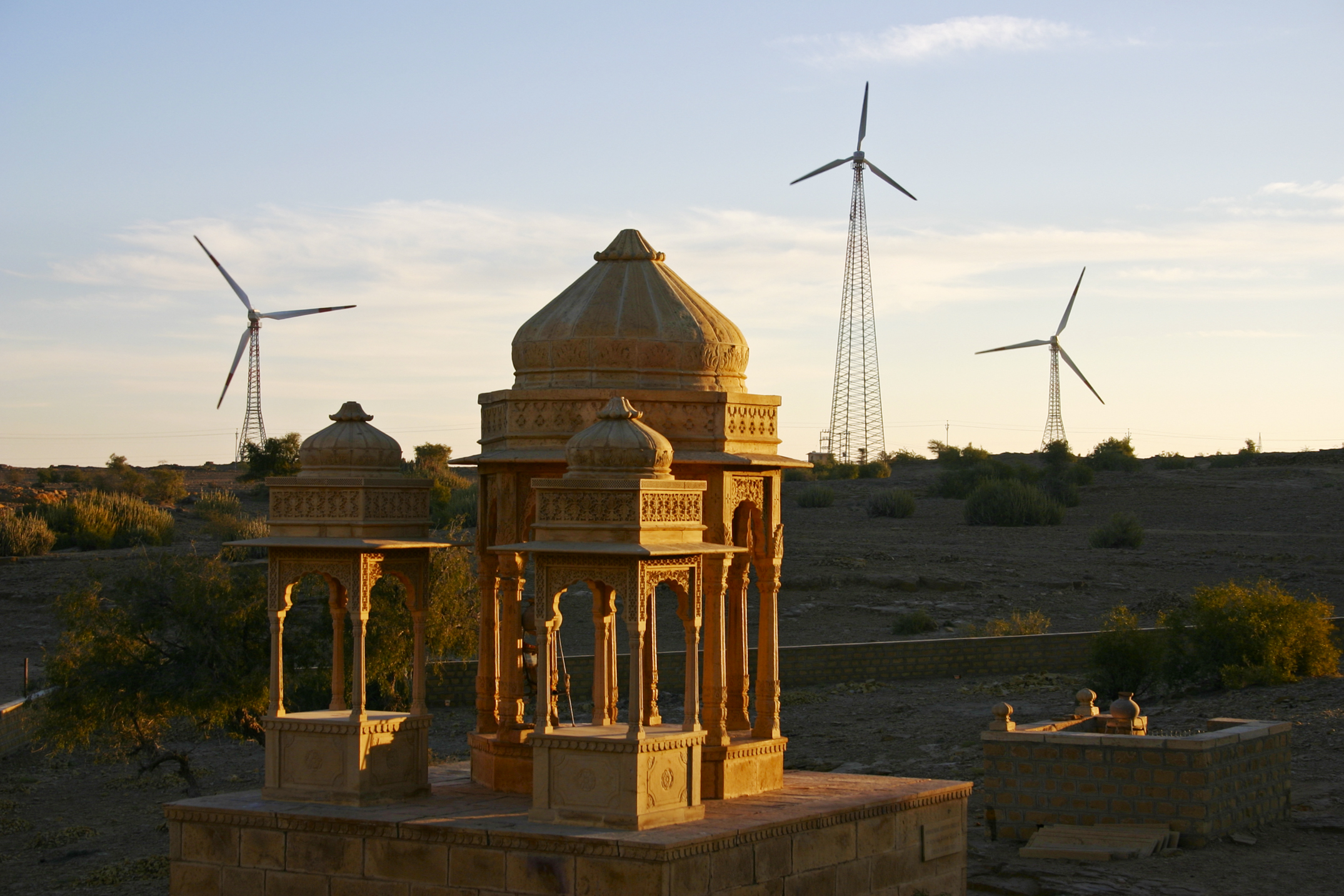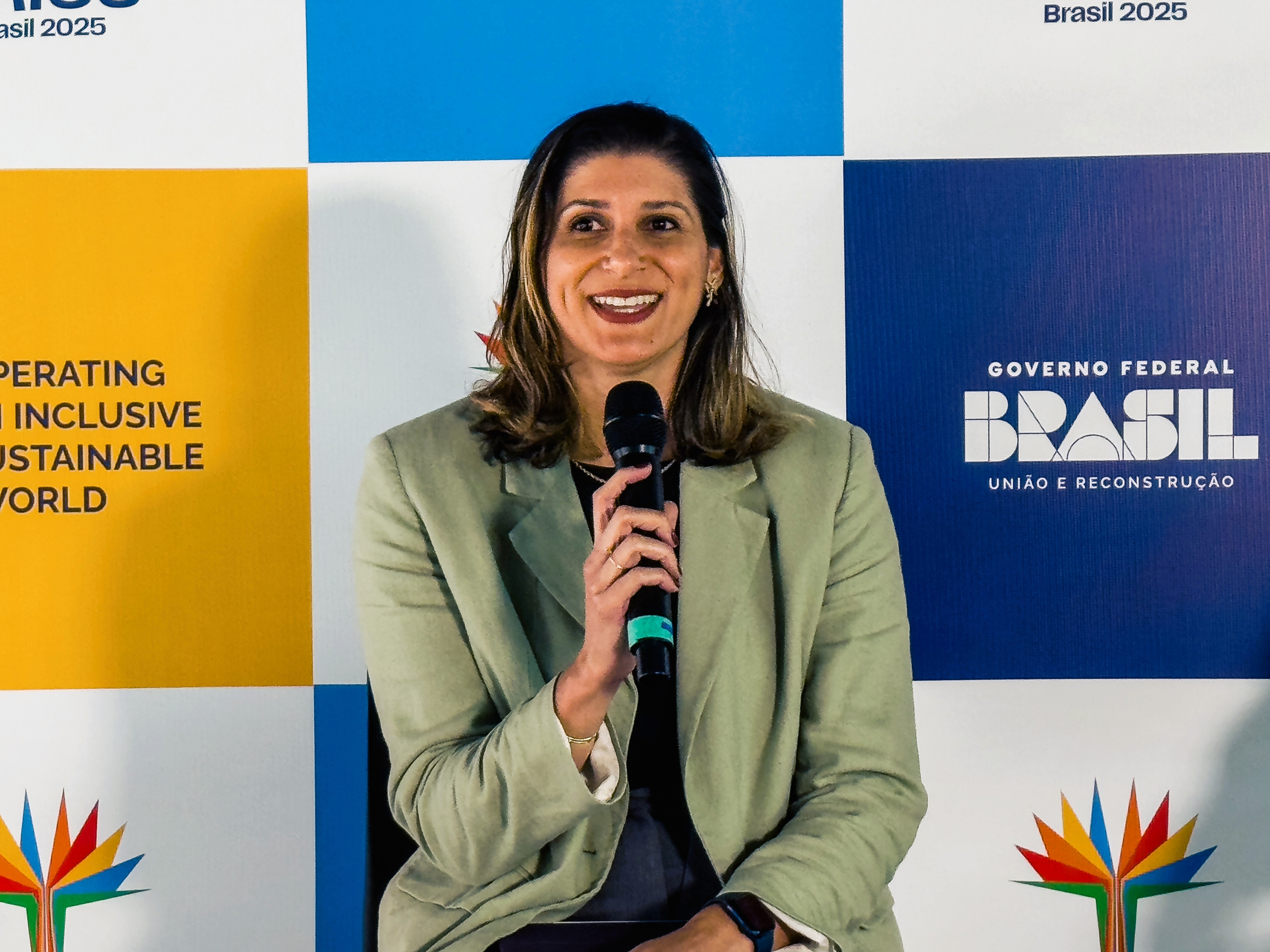BRICS are providers of technological solutions in energy
The BRICS Brasil website spoked with Mariana Espécie, Special Advisor to Brasil's Minister of Mines and Energy, Alexandre Silveira. She highlighted how the group’s member countries have been acting as providers of technological solutions through the production of biofuels, wind power, and photovoltaic equipment

By Thayara Martins e Rafael Medeiros | thayara.martins@presidencia.gov.br and rafael.lima@presidencia.gov.br
In recent years, BRICS countries have established a structure for collaboration through the BRICS Platform for Cooperation in Energy Research. The platform emphasizes the importance of advancing the energy transition and implementing Sustainable Development Goal 7 (SDG 7), while recognizing national contexts and advocating for technically neutral approaches. SDG 7 aims to ensure sustainable access to energy at affordable prices to all.
To understand the group's vision on the issue of energy, Thayara Martins and Rafael Medeiros, from the BRICS Brasil communications team interviewed Mariana Espécie, Special Advisor to Brasil's Minister of Mines and Energy, Alexandre Silveira, and BRICS coordinator of cooperation in energy activities during the Brazilian Presidency.
Espécie discussed the potential of BRICS countries to offer sustainable energy solutions, citing Brasil, India, and Indonesia as biofuel producers. She also highlighted how the voices of these countries can resonate in the COP30 discussions in Belém, in the Brazilian state of Pará. Furthermore, she addressed the social dimensions of the energy transition and the many layers of a large-scale, long-term process of changing an energy matrix.
Espécie has served as an energy research analyst at Brasil's Energy Research Company (Empresa de Pesquisa Energética/EPE), Director of the Energy Transition Department at the Ministry of Mines and Energy (Ministério de Minas Energia/MME), and co-Chair of the G20 Brasil Energy Transition Working Group. She holds a degree in Biological Sciences and a PhD in Zoology. Her work in recent years has focused on promoting sustainable solutions, with an emphasis on energy transition and low-carbon technology innovation.
Check out the interview with the special advisor for the BRICS Brasil communications team.
1) BRICS countries are important actors in the global energy landscape and each member country has specific natural resources and different social and economic realities. Moreover, they all have to face the challenge of building sustainable economies while ensuring energy security to their citizens. In this light, can you tell us about the history of the BRICS Energy Group?
Well, this group was created in 2018, during China’s BRICS presidency, recognizing energy as a key issue that unites BRICS countries across various dimensions. In 2020, this group began to adopt a more structured and organized perception of cooperation, outlining a series of workstreams to advance the energy agenda. During the Brazilian Presidency, we face the challenge of updating this work proposal by introducing new themes that address the challenges that are presented before this energy agenda in the next five years. The world is undergoing significant transformation, particularly due to the challenges posed before the countries by climate change. All of this in addition to all the commitments established by various BRICS countries in other negotiation spheres, such as the Conference of Parties organized by the United Nations (UN).

2) How does the BRICS Energy Group dialog with the issues that will be discussed this year at COP30, in Belém, in the Brazilian state of Pará?
In several ways, we understand that the energy transition is a key element of this discussion of the energy agenda in the current context. Without a doubt, the BRICS countries must be a part of this discussion. We see that many of them have very peculiar challenges and perspectives that vary greatly according to their particular contexts and social and economic realities, and the energy transition must dialog and connect with all the ends. We are inserted in a social, economic, and environmental context, and the energy resources that each country can use to pave their way toward a transition must be taken into account. So our goal is to start looking at the perspective of what will be discussed at COP30 and inaugurate a new moment within the BRICS agenda to diversify the issues that are under discussion.
The BRICS countries are impressively catalyzing the advancements in renewable energies. We have among this group important biofuel producers such as Brasil, India, Indonesia, and here it impossible not to think about China and how much that country has been a provider of technological solutions through the production of wind power and solar power photovoltaic equipment to ease the way onto the energy transition and reduce costs. So we see how much potential this group has to spearhead this agenda and how much the voices of these countries can resonate during the COP30 discussions. Especially because energy is one of the main factors related to greenhouse gas emissions, hence the responsibility and commitments established to reduce emissions. And the BRICS gathers large energy consumers that must begin to look into this agenda with better perspectives.
3) How does the Energy Group see the social aspect of the theme, particularly from the standpoint of the Global South?
We understand that, beyond the debate about the social issue, there is a series of other elements that must also be taken into consideration, thinking mainly of the supply chain that allows these technological solutions to become available at the grassroots. So we begin to see the world discussing access to minerals that are crucial for the energy transition, but how is this going to happen? Will it be sustainable?
Another issue is that the new technologies, such as wind and solar power, require larger physical spaces to be installed, and how will this impact other economic activities, both big land owners and small rural farmers?
So we begin to see a vast array of elements that coincide and the conclusion we reach is that the energy transition is a multi-layered process. All of which must be dully considered in public policy-making and, policy makers must indubitably consider all of these variables in this discussion. So, we understand that there will not be one single solution for all countries; rather, each one will have to choose their own trajectory, based on national circumstances, based on their energy resources, their financial conditions to pay for these new technologies, and all of this must be considered in a mid- to long-term perspective in order to become viable in each country.
"We understand that there will not be one single solution for all countries; rather, each one will have to choose their own trajectory, based on national circumstances, based on their energy resources, their financial conditions to pay for these new technologies, and all of this must be considered in a mid- to long-term perspective in order to become viable in each country".
This debate generates intense discussions within the group because each one of the BRICS countries has a very peculiar social and economic perspective. Without a doubt, this impacts other public policy decisions that each of these countries implements. But we know that, for many countries, the cost issue is still a barrier, and so they will use conventional solutions that are cheaper. So it is not an easy discussion and we must balance several factors, which is why access to financing can help reduce the costs of these new technologies.
4) How does the group address climate change adaptation? Because this is also an issue that involves infrastructure, financing, and cultural and economic issues.
Within the energy agenda, the issue of climate adaptation is unescapable. We understand that the discussion can take different formats. For example, how much impact can this climate change landscape have on the availability of energy resources, such as water volume in countries like Brasil, with a strong presence of hydroelectric power plants in its energy matrix? There are studies that show that the impact will be very different in countries from the Southern Hemisphere and that they will suffer a great deal with these episodes of extreme weather.
We can also discuss how this reality affects infrastructure. In Brasil, the increasing incidence of intense winds has an adverse effect on energy transmission lines, which are the beating heart of our interconnected national system. Additionally, floods have had a massive impact on infrastructure, rendering it unusable for prolonged periods, as seen with the floods in Rio Grande do Sul last year.
These are the issues we would like to bring to the group's discussion, understanding that these countries can also provide solutions for many of these dilemmas.
5) Finally, what does the Energy Group plan to deliver at the BRICS Summit this year in Brasil?
We are working on three large products. The first of them, obviously, is an updated version of our working plan, which will guide the BRICS energy cooperation activities for the next 5 years. So we are proposing a review of the entire structure, bringing new themes for discussion, and improving the organization of procedures.
We also aim to deliver two important reports, one of which focuses on sustainable fuels, taking into account the strength of BRICS countries in the biofuels sector. These fuels are currently being considered as part of the energy transition in hard-to-abate sectors.
And another report aims to address the perspective of access to energy services, because we still see many disparities in the BRICS countries regarding basic services such as electricity and food cooking. We must unquestionably address these issues in the coming years and this group is perfectly capable of establishing the means and ways to make it happen and revert this situation.